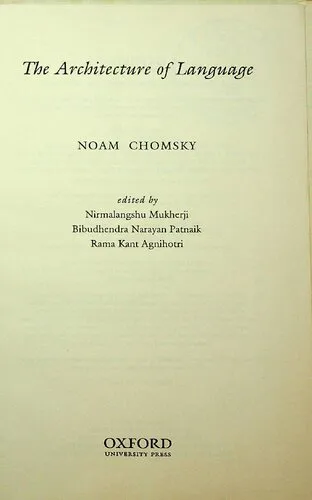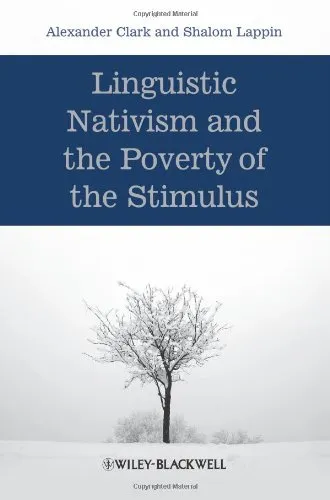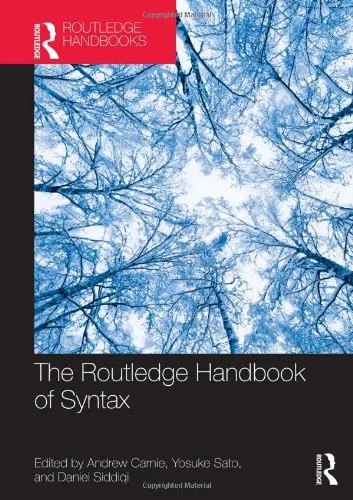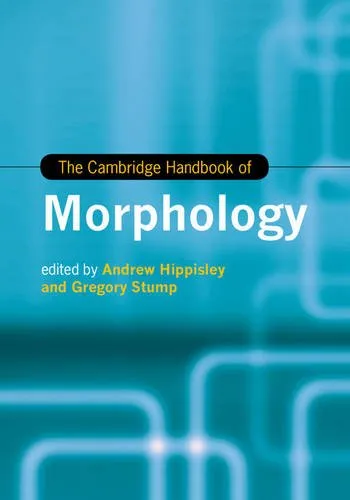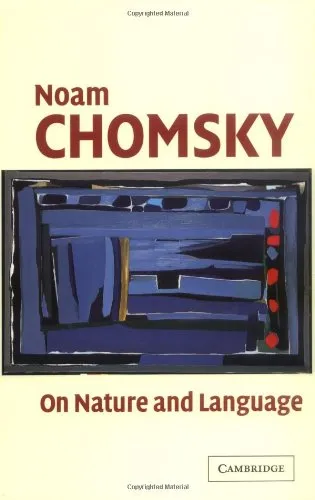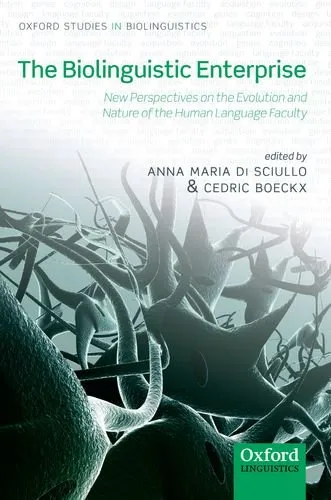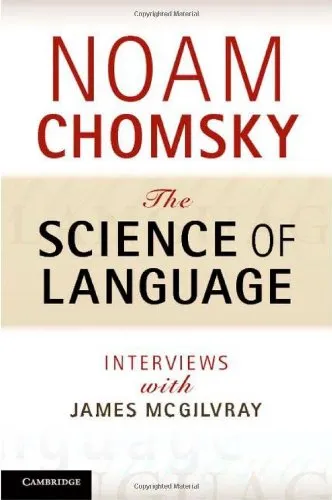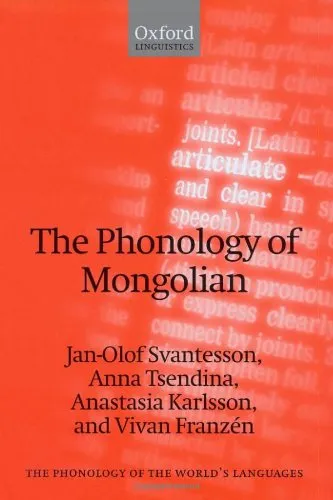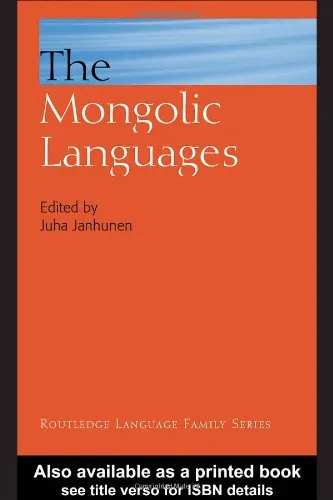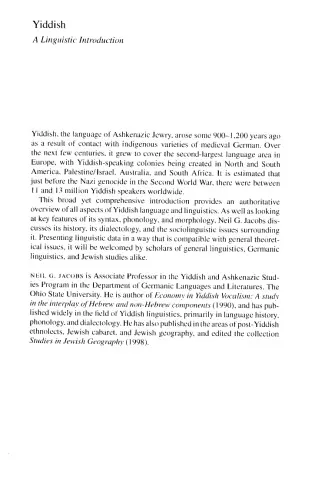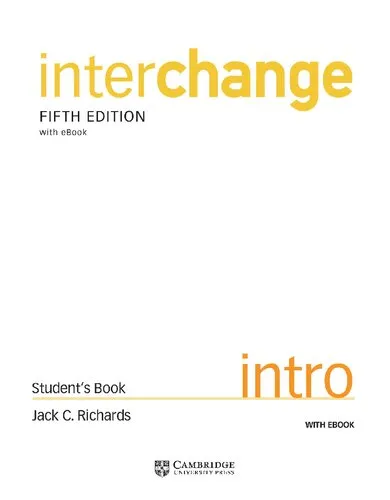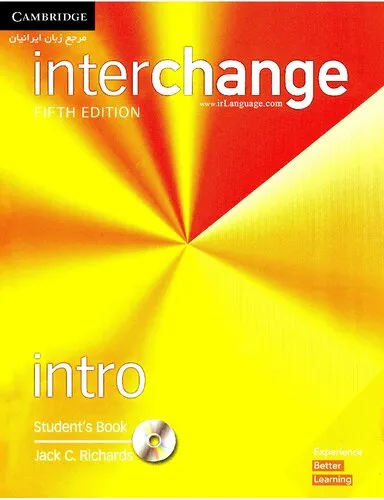The Architecture of Language
4.5
Reviews from our users

You Can Ask your questions from this book's AI after Login
Each download or ask from book AI costs 2 points. To earn more free points, please visit the Points Guide Page and complete some valuable actions.کتاب های مرتبط:
The Architecture of Language: An Insightful Exploration
"The Architecture of Language," penned by world-renowned linguist Noam Chomsky, along with Nirmalangshu Mukherji, Bibudhendra Narayan Patnaik, and Rama Kant Agnihotri, is a profound examination of the nature, structure, and evolution of human language. This pioneering work explores the fundamental questions surrounding linguistic theory, deepens our understanding of language as an innate human capacity, and bridges the fields of linguistics, cognitive science, and philosophy.
Originally based on a set of lectures delivered by Chomsky in Delhi, this book distills decades of groundbreaking research. It ventures into critical aspects of syntax, semantics, universal grammar, and the evolutionary trajectory of language, presented in an accessible yet intellectually rigorous manner. By weaving theoretical discussions with empirical insights, "The Architecture of Language" serves as a cornerstone for anyone eager to delve into the principles of linguistics and cognitive inquiry.
Detailed Summary of the Book
At its core, "The Architecture of Language" investigates how humans acquire language, the mental structures that govern linguistic competence, and the universal principles underlying all human languages. The book critically analyzes traditional theories of language development while extending the modern framework of Universal Grammar, a revolutionary concept introduced by Chomsky.
Chomsky argues that language is more than a functional tool for communication—it is a biological system ingrained in the human species. The innate capacity for language acquisition exists within every individual, governed by an intricate architecture of mental processes. The book tackles key questions such as: How do children acquire complex linguistic structures with minimal exposure? Why do languages across cultures exhibit remarkable similarities in their syntactic frameworks?
The discussion also delves into the connection between language and cognition, highlighting how linguistic creativity and generative grammar set humans apart from other species. Through thought-provoking essays and dialogues with scholars, the book examines the philosophical and scientific implications of these ideas, making it an indispensable resource for linguists, philosophers, and scientists alike.
Key Takeaways
- Language is an inherent cognitive faculty, unique to humans.
- The theory of Universal Grammar posits that all languages share a common structural basis.
- The generative nature of language enables humans to produce infinite expressions from a limited set of rules and vocabulary.
- Linguistic theory bridges philosophy, cognitive science, and biological evolution.
- Understanding language architecture sheds light on broader questions of human nature and intelligence.
Famous Quotes from the Book
"Language is a mirror of mind in a deep and significant sense. It is a product of human intelligence, created anew in each individual by operations that lie far beyond the reach of will or consciousness."
"An elementary property of language is that it is a system of discrete infinity."
Why This Book Matters
"The Architecture of Language" is more than just an academic treatise; it is a profound exploration of what it means to be human. By examining the innate capacity for language acquisition, this book poses critical questions about the nature of knowledge, the evolution of cognition, and the biological underpinnings of creativity. It has influenced generations of linguists, cognitive scientists, philosophers, and psychologists, opening up new avenues of interdisciplinary research.
For students, educators, and researchers, this book serves as a foundation for understanding how linguistic principles define human capability and identity. It challenges traditional theories and methodologies, fostering a nuanced appreciation of the elegance and complexity of human language. It invites readers to redefine their understanding of communication, thought, and the intricate connections that make us truly unique as a species.
Free Direct Download
You Can Download this book after Login
Accessing books through legal platforms and public libraries not only supports the rights of authors and publishers but also contributes to the sustainability of reading culture. Before downloading, please take a moment to consider these options.
Find this book on other platforms:
WorldCat helps you find books in libraries worldwide.
See ratings, reviews, and discussions on Goodreads.
Find and buy rare or used books on AbeBooks.
1508
بازدید4.5
امتیاز0
نظر98%
رضایتReviews:
4.5
Based on 0 users review
Questions & Answers
Ask questions about this book or help others by answering
No questions yet. Be the first to ask!
